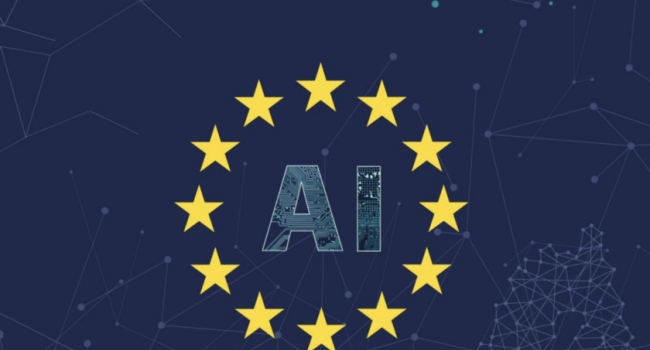
The EU adopts first law in the world regulating AI
The European Union has finalized the world's first law regulating the use of artificial intelligence (AI). The document establishes "comprehensive rules" for AI technologies and is based on assessing the risks of their application in autonomous transportation, medical devices, financial services, and education.
The law is groundbreaking and establishes an approach to AI regulation. In particular, it will completely ban the use of so-called "social scoring" systems that rank citizens based on data analysis. Predictive policing and the use of emotional recognition in workplaces and schools will also be prohibited, reports CNBC.
High-risk AI systems, such as autonomous vehicles, medical devices, financial, and educational services, will be evaluated for threats to health, safety, and citizens' rights. Additionally, the law imposes strict limitations on so-called generative AI systems, including ChatGPT. These systems must comply with copyright laws, disclose information about model training, and undergo regular cybersecurity testing.
The change in EU legislation came after the launch of OpenAI’s ChatGPT in November 2022. Officials realized that existing laws lacked detailed provisions crucial for regulating the use of generative AI in handling copyrighted materials.
The law will not be fully effective for at least 12 months, and existing systems like ChatGPT, Gemini, and Copilot will have a 36-month transition period to comply with the new standards. "The adoption of the AI law is a significant milestone for the European Union," said Belgian State Secretary for Digitalization Mathieu Michel.
Companies that violate the law will be fined up to 35 million euros or 7% of their annual revenue. This will primarily affect American tech giants such as Google, Microsoft, and OpenAI. "Now the focus must be on the effective implementation and enforcement of the AI law," said Dessislava Savova, head of the EU global consumer products and retail group.
The main goal of this law is to ensure trust, transparency, and accountability in the use of AI technologies while not stifling innovation.
It should be noted that a number of major American newspapers are already suing OpenAI and Microsoft for using copyrighted content without the authors' permission to train their artificial army models. News publishers are concerned that chatbots and AI search engines like ChatGPT and Google could undermine their business models, leading to further layoffs and bankruptcies in an already battered industry.
- Related News
- OpenAI has introduced SearchGPT, an AI-powered search engine
- Musk claims humanoid robots will be used in Tesla in 2025
- Designer: Microsoft introduces new service for generating images
- OpenAI introduces GPT-4o Mini: What is it capable of?
- Synchron integrates ChatGPT with human brain
- Beta version of WhatsApp for Android already converts voice messages to text
- Most read
month
week
day
- Buyers massively complain about Samsung's Galaxy Buds 3 and Buds 3 Pro headphone, even finding hair in the box 824
- With today's mortgage interest rates, banks simply cannot sell products in 2025: Interview with Vardan Marutyan 816
- Ants and bees 'taught' tiny drones to navigate without GPS, beacons or lidars 677
- Samsung will release Galaxy Tab S10+ and Ultra tablets and Galaxy Z Fold 6 Slim and Galaxy w25 smartphones in October 645
- Insider unveils specs of all smartphones of iPhone 17 series, including the 17 Slim 606
- Mass production of iPhone SE 4 will begin this October, with sales starting in 2025 603
- Telegram's monthly active audience reaches 950 million 587
- What are the problems in the construction industry? Interview with Vardan Marutyan 565
- For the first time in history, iPhone will get a Samsung camera 564
- What dangers can feature phones from unknown manufacturers conceal? 559
- Archive
